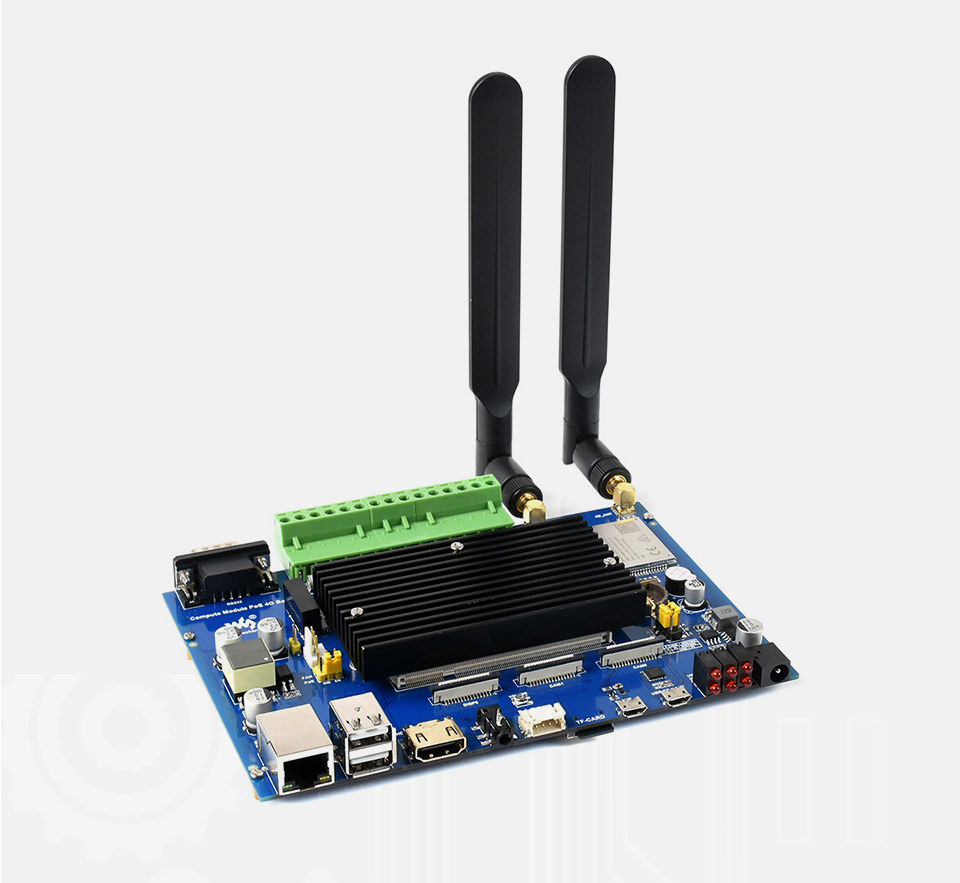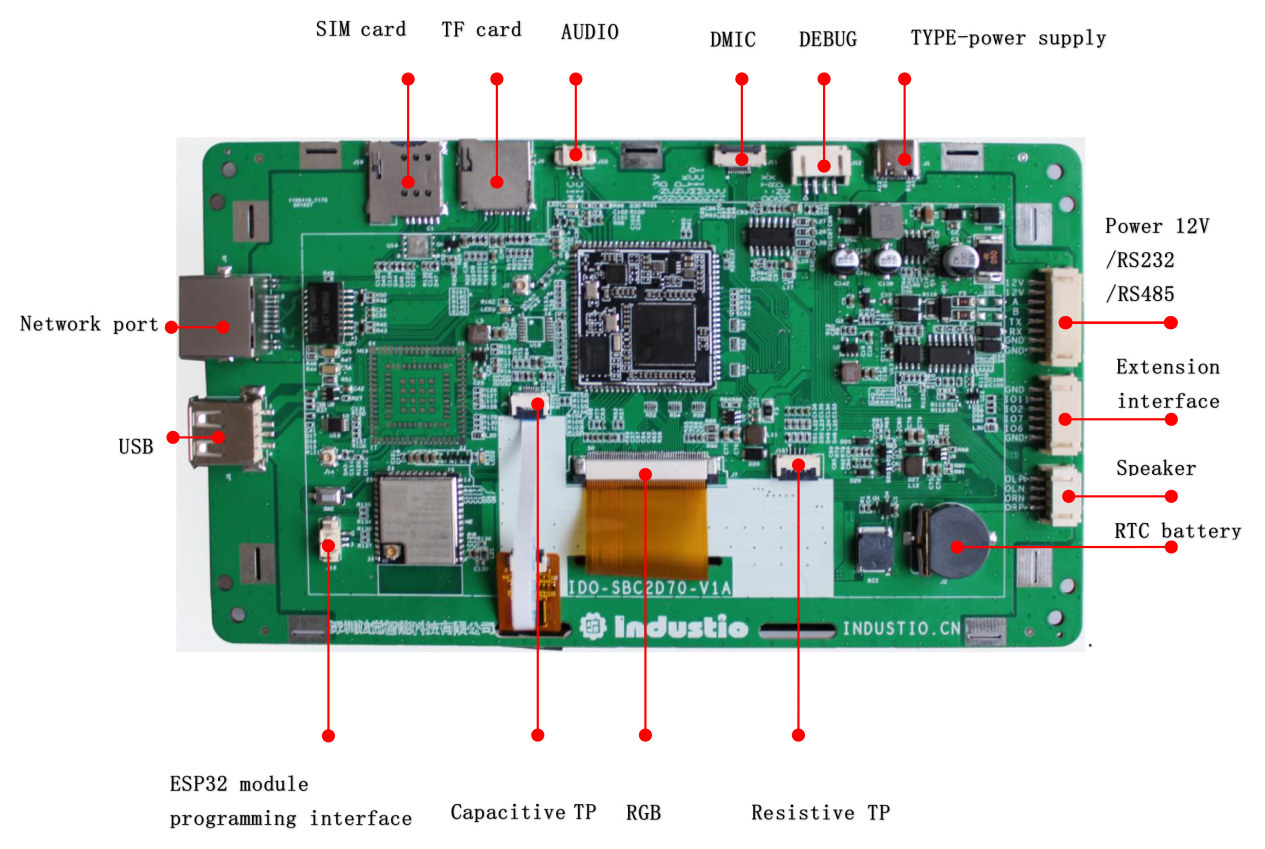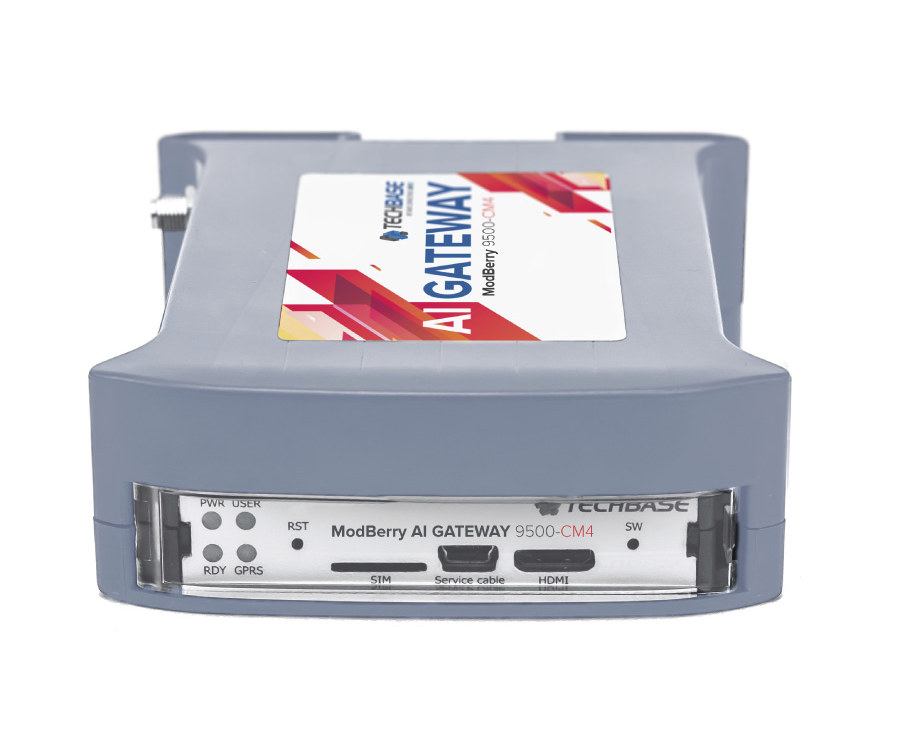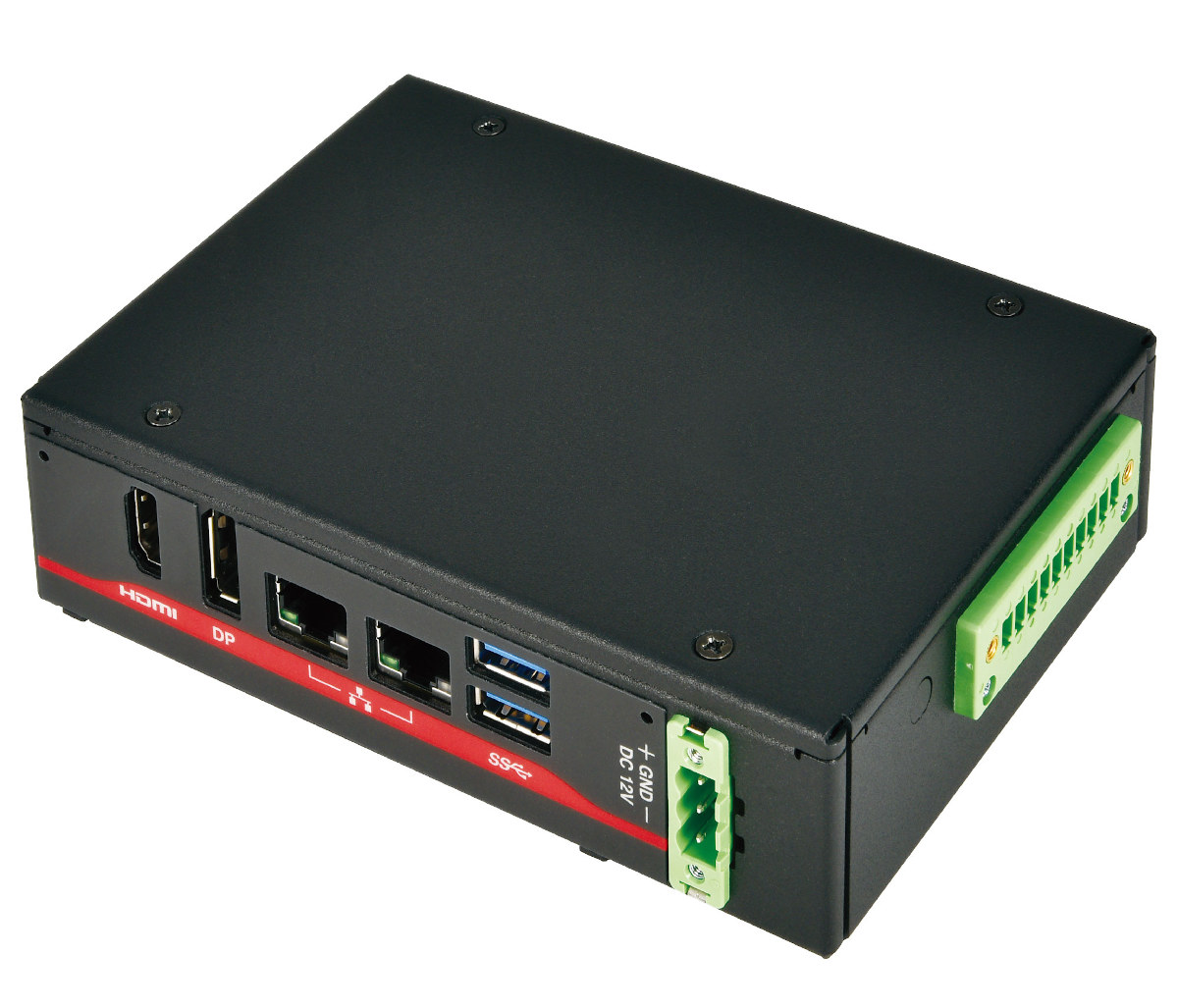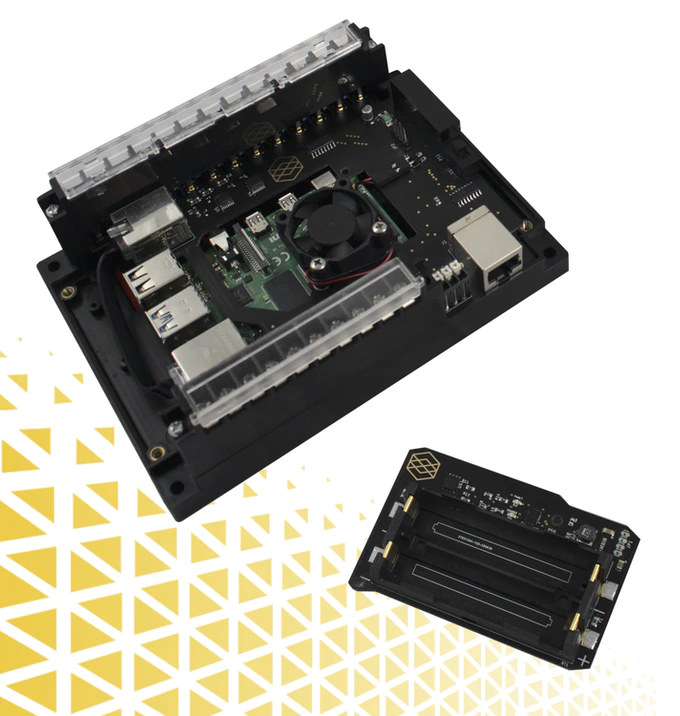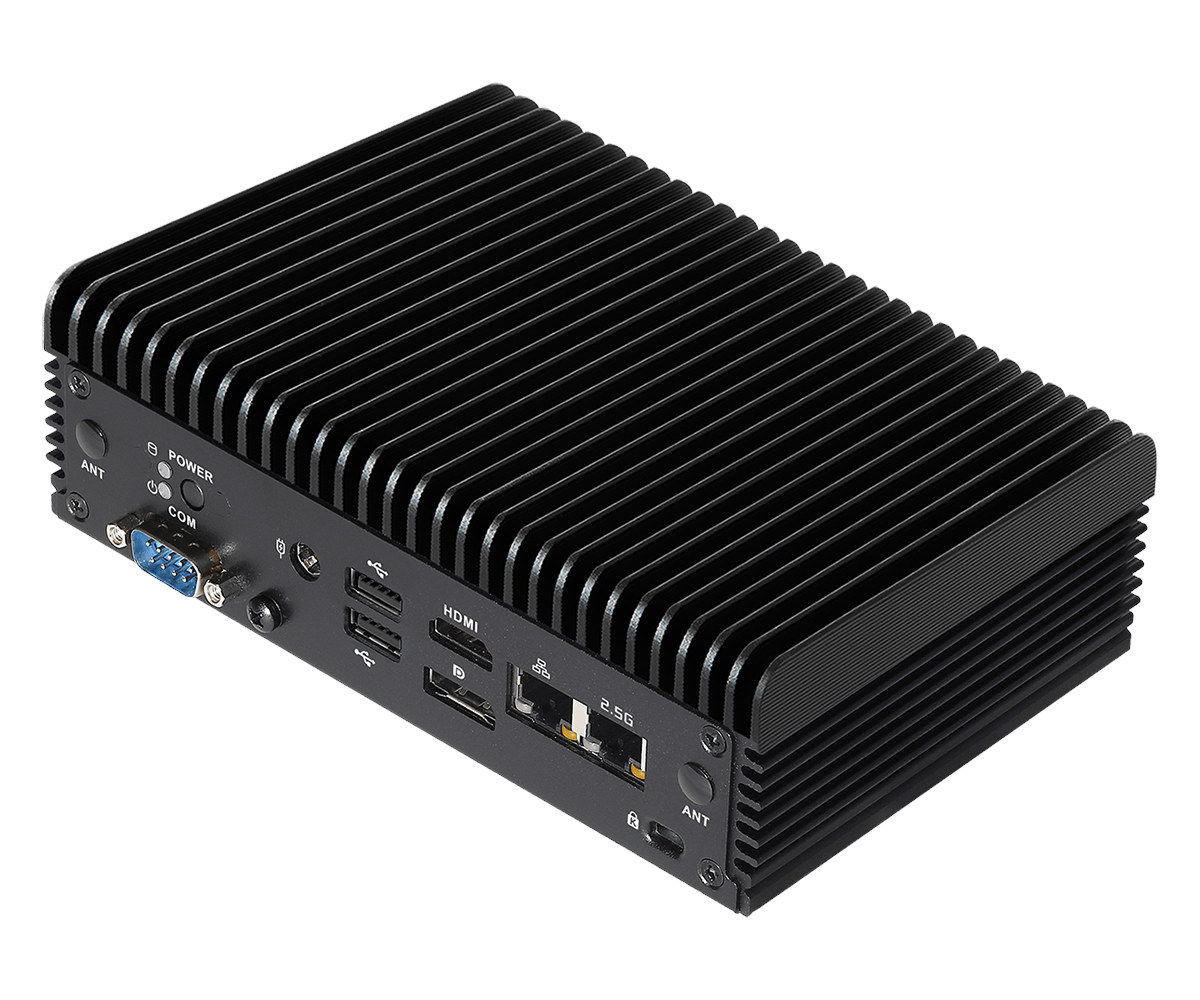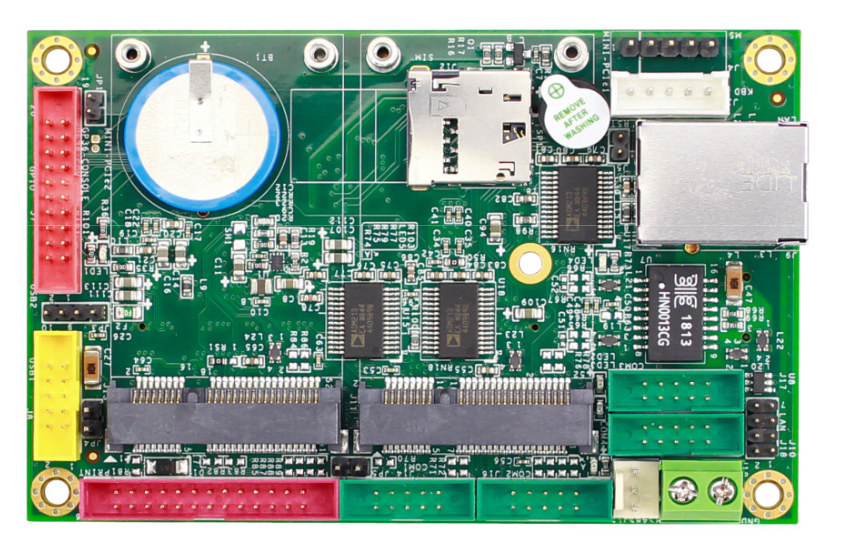The Raspberry Pi Computer Module 4 (CM4) may have been introduced in October, but that does not mean people have stopped all development on Raspberry Pi CM3/CM3+ hardware, and Waveshare has just launched a carrier board for the module with PoE support and a 4G LTE modem namely Simcom SIM7600G-H module with 3G and 2G fallback. The board also offers Ethernet and WiFi connectivity, HDMI and MIPI CSI/DSI video interfaces, multiple USB ports, as well as isolated CAN bus, RS485, RS232, and other I/Os for industrial applications. Compute Module PoE 4G board specifications: Storage – MicroSD card slot for Raspberry Pi CM3 Lite / CM3+ Lite modules Video Output – HDMI 2.0 port, MIPI DSI connector compatible with the official Raspberry Pi display Audio – 3.5mm stereo audio jack, 4-pin speaker connector for 8Ω/5W speaker Camera I/F – 2x independent MIPI CSI ports Connectivity 10/100M Ethernet RJ45 port with PoE […]
Industio 7-inch smart display features SigmaStar SSD201 SoM, WiFi and Ethernet
We previously covered the $10 Industio IDO-SOM2D01 module based on SigmaStar SSD201 Cortex-A7 processor with 64MB RAM built-in, 128MB SPI NOR flash, and designed for full HD smart displays. Today I learned Industio was the design team of system-on-module for Wireless Tag, and the latter is the only distributor of Industio branded products. The company also informed us about Industio IDO-SBC2D70 7-inch smart display based on the aforementioned SSD201 or SSD202 module and connected over Ethernet or WiFi. Industio IDO-SBC2D70 smart display specifications: SoM – Industio IDO-SOM2D01 with SoC – SigmaStar SSD201/SSD202 dual-core Cortex-A7 processor @ 1.2 GHz with 2D GPU, 64MB DDR2 (SSD201) or 128MB DDR3 (SSD202) Storage – 128MB SPI NAND flash (option up to 512MB) Video Decoder – H.264/H.265 up to 1920×1080 @ 60 fps Dimensions – 2.95 x 2.95 cm Storge – MicroSD card socket (SDIO 2.0) Display – 1024 x 600 IPS RGB module by […]
AI Gateway combines Raspberry Pi Compute Module 4 with Google Coral Edge TPU
Techbase quickly unveiled an update to their Modberry industrial controllers with Modberry 500 CM4 DIN Rail computer as soon as Raspberry Pi Compute Module 4 was launched. The company has now introduced another Raspberry Pi CM4 based product with ModBerry AI GATEWAY 9500-CM4 gateway combining the Broadcom BCM2711C0 system-on-module to Google Edge TPU to cater to applications leveraging AI acceleration. ModBerry AI GATEWAY 9500-CM4 preliminary specifications: SoM – Raspberry Pi Compute Module 4 AI accelerator – Google Coral Edge TPU module with up to 4 TOPS connected over the RPi CM4’s PCIe interface Peripherals (customizable as needed) USB, HDMI, and Ethernet. Serial RS-232/485 ports Digital and analog I/Os with or without opto-isolation Relays, 1-Wire, CAN bus, M-Bus Master and Slave PCIe modules for wireless support Cellular – 4G/LTE and 5G modem, interchangeable with Coral TPU, plus on-board eSIM LPWAN – NB-IoT, LoRa, Sigfox, Wireless M-Bus ZigBee Additional Wi-Fi/Bluetooth interface or […]
Fanless Linux embedded system makes a compact IoT gateway
ICP Germany has recently introduced the MiTAC ME1-8MD series family of compact, fanless Linux embedded systems powered by NXP i.MX 8M processor and designed to be used as IoT gateways, data acquisition and processing systems, and mini servers. Three models have been launched with a choice of dual or quad-core processors, up to 4GB LPDDR4 RAM, and 32GB eMMC flash storage. The embedded computers also come with up to two Ethernet ports, support up to two displays, and include an internal Raspberry Pi compatible 40 pin GPIO header. MiTAC ME1-8MD specifications and key features: SoC – NXP i.MX 8M Dual or Quad with two or four Cortex-A53 @ 1.3GHz, Cortex-M4 MCU, Vivante GC7000 Lite GPU, and 4K video processing unit System Memory – 1 to 4GB LPDDR4 800 Mhz RAM Storage – 8, 16, or 32GB eMMC flash, 1x MicroSD card slot up to 256GB Video Output HDMI 2.0 Optional […]
Pi-oT 2 IoT module adds 24V digital inputs, RS-485, and UPS to Raspberry Pi (Crowdfunding)
Pi-oT was launched last year as a Raspberry Pi add-ons designed for commercial and industrial IoT automation. It features 5V I/Os, relays, and ADC inputs suitable for light-duty projects and prototyping. The company, called Edge Devices, has now launched an update with Pi-oT 2 adding optional support for 24V digital inputs, RS-485, and an uninterruptible power supply (UPS). Pi-oT 2 comes in three variants with the following key features and specifications: SBC support – Raspberry Pi model B boards with 40-pin I/O header Connectivity – Ethernet access via extra port 6x digital outputs 8x analog inputs (0 to 5V), 10-bit precision for Pi-oT 2 and 2 +Plus models, 10-bit precision for Pi-oT 2 Precision variant Model specific features Pi-OT 2 4x GPIO 5V power supply Pi-oT 2 +Plus 4x GPIO 5V power supply + UPS Pi-OT 2 Precision 4x 24V digital inputs, compliant with IEC-61131-2 standard (instead of 4x GPIO […]
LibIIO – Library for interfacing Linux industrial I/O devices
For more than 6 years, the LibIIO library has existed to ease the development of software interfacing Linux Industrial I/O (IIO) devices. It is part of the Linux Kernel and a subsystem that provides support for devices like analog to digital or digital to analog converters (ADCs, DACs). This subsystem includes ADCs, accelerometers, pressure sensors, color, light and proximity sensors, temperature sensors, RF transceivers, and many more. You can use LibIIO natively on an embedded Linux target. It is cross-platform, supporting Linux, Windows, and Mac OS. Analog Devices Inc. was the main company behind LibIIO development, which is currently an active open-source library, which many people have contributed to. What does LibIIO do? LibIIO will identify the channels that belong to each device. It will assign specific attributes, one for the channels and one for the devices. Then, it will also create a context that is a place where all […]
ASRock iBOX-V2000 mini PC integrates an AMD Ryzen Embedded V2000 SBC
AMD officially announced AMD Ryzen Embedded V2000 Zen2 processor family yesterday, with claims of twice the multi-threaded performance-per-watt, up to 30 percent better single-thread CPU performance, and up to 40 percent better graphics performance over Ryzen Embedded V1000 processors. We’ve already covered ADLINK cExpress-AR COM Express module featuring the new AMD embedded processor, but we should expect more Ryzen V2000 hardware announcements over the next few days and weeks, and ASRock Industrial has announced the iBOX-V2000 fanless mini PC with lower power parts, namely Ryzen Embedded V2516 & V2718, and targets embedded, industrial, and Edge applications such as retail, automation, automotive, entertainment, and smart cities. IBOX-V2000 mini PC comes in two variants IBOX-V2000M and IBOX-V2000V with the following specifications: SoC IBOX-V2000V – AMD Ryzen Embedded V2516 hexa-core/12-thread processor @ up to 2.1 GHz / 3.95 GHz (Turbo) with 6 CUs Radeon RX Vega 6 GPU; 10-25W TDP IBOX-V2000M – AMD […]
ICOP VEX2-6415 SBC runs DOS, QNX, Linux, Windows on Vortex86EX2 “Dual OS” x86 processor
DM&P Vortex86EX2 is a dual-core x86 processor that supports legacy ISA and PCI interfaces, and designed in a way that makes it capable of running two OS independently, easy with its own BIOS, without the need for virtualization, nor a hypervisor. At the time, we also covered the Vortex86EX2 evaluation board from the company, but the first commercial product that has come to my attention is ICOP VEX2-6415 Vortex86EX2 SBC designed for automation and IoT, and which the company says support “Windows Embedded Compact 7, Windows Embedded Compact 6, various of (sic) Linux distribution, QNX, and even the legacy but still popular DOS”. ICOP VEX2-6415 SBC specifications: CPU – DM&P Vortex86EX2 dual-core processor with Master core @ 600MHz max with build-in FPU L1/L2 Cache for user interface Slave core @ 400MHz max with build-in FPU, L1 Cache for real-time control System Memory – 512MB/1GB DDR3 Storage – 4GB eMMC flash […]


